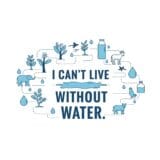ifの基本について知ろう
英語の「if」は、条件を表す接続詞であり、様々な文脈で使われます。ここでは、「if」の主な意味と用法、関連表現について解説します。
1. 主な意味と用法
- もし~ならば (introducing a conditional clause):
- ある条件が満たされた場合に、別の事柄が起こることを表します。
- 例: “If it rains, I will stay home.” (もし雨が降れば、私は家にいます。)
- 例: “If you study hard, you will pass the exam.” (もし一生懸命勉強すれば、試験に合格するでしょう。)
- ある条件が満たされた場合に、別の事柄が起こることを表します。
- ~かどうか (introducing an indirect question):
- ある事柄が真実かどうかを尋ねる間接疑問文で使われます。
- 例: “I don’t know if he will come.” (彼が来るかどうか私は知りません。)
- 例: “She asked if I had finished my homework.” (彼女は私が宿題を終えたかどうか尋ねました。)
- ある事柄が真実かどうかを尋ねる間接疑問文で使われます。
2. 文中での位置
- 「if」は、条件節の文頭に置かれます。
- 条件節が主節の前に来る場合、コンマで区切ります。
- 例: “If you are ready, we can go.” (もし準備ができたら、私たちは出発できます。)
- 条件節が主節の後に来る場合、コンマは不要です。
- 例: “We can go if you are ready.” (準備ができたら、私たちは出発できます。)
3. 関連表現
- if…then…:
- 条件と結果を明確に結びつける際に使います。
- 例: “If you eat too much, then you will get fat.” (食べすぎると、太るでしょう。)
- 条件と結果を明確に結びつける際に使います。
- even if:
- ある条件が満たされたとしても、別の事柄が起こることを表します。
- 例: “Even if it rains, I will go.” (たとえ雨が降っても、私は行きます。)
- ある条件が満たされたとしても、別の事柄が起こることを表します。
- if only:
- 願望や後悔を表す際に使います。
- 例: “If only I had studied harder.” (もっと一生懸命勉強していればなあ。)
- 願望や後悔を表す際に使います。
- as if / as though:
- まるで~のように、という意味で使われます。
- 例: “He talks as if he knew everything.” (彼はまるで全てを知っているかのように話す。)
- まるで~のように、という意味で使われます。
4. 注意点
- 条件節では、未来のことを表す場合でも、「will」ではなく現在形を使うのが一般的です。
- 例: “If it rains tomorrow, I will stay home.” (もし明日雨が降れば、私は家にいます。)
- 「if」は、文脈によって様々な意味を持つため、注意が必要です。
ifの類似表現について知ろう
英語の「if」は、条件を表す接続詞として非常に一般的ですが、文脈やニュアンスによって様々な類似表現を使い分けることができます。ここでは、「if」の主な意味と用法ごとに、類似表現とそれぞれのニュアンスの違いを解説します。
1. もし~ならば (introducing a conditional clause) の類似表現
- provided (that):
- 意味: もし~ならば、~という条件で
- ニュアンス: 条件が満たされれば、というニュアンスを強調します。
- 例: “Provided that you have a valid passport, you can enter the country.” (有効なパスポートをお持ちならば、入国できます。)
- supposing (that):
- 意味: もし~ならば、~と仮定して
- ニュアンス: 仮定的な条件を表します。
- 例: “Supposing that he comes, what should we do?” (もし彼が来たら、私たちはどうすればよいでしょうか?)
- on condition that:
- 意味: ~という条件で
- ニュアンス: よりフォーマルな表現で、契約や合意などでよく使われます。
- 例: “We will sign the contract on condition that you agree to our terms.” (私たちが条件に合意するという条件で、契約に署名します。)
- in case (that):
- 意味: ~の場合に備えて、万が一~ならば
- ニュアンス: 未来の可能性に対する備えを表します。
- 例: “Take an umbrella in case it rains.” (雨が降った場合に備えて、傘を持って行きなさい。)
- as long as:
- 意味: ~である限り
- ニュアンス: 条件が継続する限り、というニュアンスを表します。
- 例: “You can borrow my car as long as you drive carefully.” (注意深く運転する限り、私の車を借りてもいいです。)
2. ~かどうか (introducing an indirect question) の類似表現
- whether:
- 意味: ~かどうか
- ニュアンス: 「if」とほぼ同じ意味ですが、よりフォーマルな表現で、選択肢がある場合や不確実性を強調する場合に使われます。
- 例: “I don’t know whether he will come or not.” (彼が来るかどうか私は知りません。)
使い分けのポイント
- 文脈やニュアンスに合わせて、適切な類似表現を選ぶことが重要です。
- フォーマルな場面では、「provided that」「on condition that」「whether」などを使うと良いでしょう。
- 日常会話では、「supposing that」「in case」などがよく使われます。
「if」の類似表現一覧表
| ifの意味 | 類似表現 | ニュアンスの違い | 例文 |
|---|---|---|---|
| もし~ならば (introducing a conditional clause) | provided (that) | 条件が満たされれば、というニュアンスを強調 | Provided that you have a valid passport, you can enter the country. (有効なパスポートをお持ちならば、入国できます。) |
| もし~ならば (introducing a conditional clause) | supposing (that) | 仮定的な条件を表す | Supposing that he comes, what should we do? (もし彼が来たら、私たちはどうすればよいでしょうか?) |
| もし~ならば (introducing a conditional clause) | on condition that | よりフォーマルな表現で、契約や合意などでよく使われる | We will sign the contract on condition that you agree to our terms. (私たちが条件に合意するという条件で、契約に署名します。) |
| もし~ならば (introducing a conditional clause) | in case (that) | 未来の可能性に対する備えを表す | Take an umbrella in case it rains. (雨が降った場合に備えて、傘を持って行きなさい。) |
| もし~ならば (introducing a conditional clause) | as long as | 条件が継続する限り、というニュアンスを表す | You can borrow my car as long as you drive carefully. (注意深く運転する限り、私の車を借りてもいいです。) |
| ~かどうか (introducing an indirect question) | whether | よりフォーマルな表現で、選択肢がある場合や不確実性を強調する場合に使う | I don’t know whether he will come or not. (彼が来るかどうか私は知りません。) |
if+SVの省略について知ろう
英語の「if」は、条件を表す重要な接続詞ですが、特定の状況下では省略されることがあります。主に、仮定法と呼ばれる文法構造において、「if」の省略とそれに伴う語順の倒置が見られます。
1. 仮定法における「if」の省略
仮定法は、現実とは異なる状況や、起こりそうもないことを述べる際に用いられます。仮定法で「if」を省略すると、助動詞や be 動詞が主語の前に置かれる倒置が起こります。
- 仮定法過去:
- 「If I were you, I would…」(もし私があなたなら、私は…だろう)のような文で、「if」を省略すると「Were I you, I would…」となります。
- 仮定法過去完了:
- 「If I had known, I would have…」(もし知っていたら、私は…していただろう)のような文で、「if」を省略すると「Had I known, I would have…」となります。
- 仮定法未来:
- 「If you should need help, please call me.」(もし助けが必要なら、私に電話してください)のような文で、「if」を省略すると「Should you need help, please call me.」となります。
2. 「if」省略の条件
「if」の省略は、以下の条件が満たされる場合に可能です。
- 仮定法の文であること
- 助動詞(should, had, were)が文頭に来る場合
3. 「if」省略のニュアンス
「if」を省略した倒置構文は、よりフォーマルな印象や、文を強調する効果があります。日常会話よりも、書き言葉や演説などでよく用いられます。
4. 注意点
- すべての「if」節で省略できるわけではありません。特に、現実的な条件を表す場合は省略できません。
- 「if」の省略は、仮定法に特有の現象です。
5. 例文
- 通常の「if」を含む文:If he had arrived earlier, he could have caught the train.
- 「if」省略と倒置:Had he arrived earlier, he could have caught the train.
- 通常の「if」を含む文:If it were not for your help, I would be in trouble.
- 「if」省略と倒置:Were it not for your help, I would be in trouble.
ifの比喩表現について知ろう
英語の「if」は、条件を表す接続詞ですが、比喩表現を用いることで、より豊かで感情的な表現が可能になります。ここでは、「if」の比喩表現とその意味合いを解説します。
1. 可能性・選択肢を象徴する比喩 (続き)
- “if the bridge is built”
- 意味: 関係が築かれる、障壁が取り除かれる
- 解説: 人々や物事の間に新たな関係や繋がりが生まれることを、橋が建設される様子に例えています。
- 例文: “We can achieve great things if the bridge is built between our two departments.” (もし私たちの二つの部署の間に橋が架かれば、私たちは素晴らしいことを成し遂げられるでしょう。)
- “if the spark ignites”
- 意味: きっかけが生まれる、情熱が燃え上がる
- 解説: 何かの始まりや情熱が生まれることを、火花が点火する様子に例えています。
- 例文: “If the spark ignites, we could start a revolution.” (もし火花が点火すれば、私たちは革命を起こせるかもしれない。)
2. 仮定・条件の重要性を象徴する比喩 (続き)
- “if the roots are strong”
- 意味: 基礎がしっかりしている、基盤が安定している
- 解説: 物事の基礎や基盤がしっかりしていれば、安定して成長できることを表します。
- 例文: “Our company will thrive if the roots are strong.” (私たちの会社は、基礎がしっかりしていれば繁栄するでしょう。)
- “if the puzzle pieces fit”
- 意味: 条件が揃う、状況がうまく収まる
- 解説: 複数の要素や条件がうまく組み合わさり、解決や成功につながることを表します。
- 例文: “We can solve this mystery if all the puzzle pieces fit.” (もし全てのパズルのピースが合えば、この謎を解くことができます。)
3. 時間・機会を象徴する比喩
- “if the clock ticks”
- 意味: 時間が経過する、機会が失われる
- 解説: 時間の経過や機会の喪失を、時計の針が刻む様子に例えています。
- 例文: “We must act now, if the clock ticks, it may be too late.” (今行動しなければ、時間が経てば手遅れになるかもしれません。)
- “if the moment arrives”
- 意味: 適切な時が来る、チャンスが訪れる
- 解説: 待ち望んでいた時やチャンスが訪れることを表します。
- 例文: “I will be ready if the moment arrives.” (その時が来たら、私は準備ができているでしょう。)
4. 感情・心理状態を象徴する比喩 (続き)
- “if the heart sings”
- 意味: 心が躍る、喜びを感じる
- 解説: 心からの喜びや幸福感を表します。
- 例文: “My heart will sing if I see you again.” (あなたにまた会えたら、私の心は躍るでしょう。)
- “if the soul whispers”
- 意味: 内なる声が語りかける、直感が働く
- 解説: 内なる声や直感に従うことの重要性を表します。
- 例文: “Listen to your soul, if it whispers, follow its guidance.” (あなたの魂の声に耳を傾け、もし囁きが聞こえたら、その導きに従いなさい。)
ifに関連する練習問題に挑戦しよう
問題 1: 次の文を日本語に訳しましょう。
- If it rains, I will stay home.
- If you study hard, you will pass the exam.
- I don’t know if he will come.
- If only I had studied harder.
- He talks as if he knew everything.
問題 2: 次の日本語の文を英語に訳しましょう。
- もし雨が降れば、私は家にいます。
- もし一生懸命勉強すれば、試験に合格するでしょう。
- 彼が来るかどうか私は知りません。
- もっと一生懸命勉強していればなあ。
- 彼はまるで全てを知っているかのように話す。
問題 3: 次の文の ( ) に適切な語句を選びましょう。
- ( ) you are ready, we can go. (a) If (b) Whether (c) Provided
- I don’t know ( ) he will come or not. (a) if (b) whether (c) as long as
- You can borrow my car ( ) you drive carefully. (a) in case (b) as long as (c) supposing
- We will sign the contract ( ) you agree to our terms. (a) provided that (b) as if (c) if only
- Take an umbrella ( ) it rains. (a) whether (b) as long as (c) in case
問題 4: 次の文の誤りを訂正しましょう。
- If it will rain tomorrow, I will stay home.
- I don’t know that if he will come.
- If only I would have studied harder.
- He talks as whether he knew everything.
- You can borrow my car in case you drive carefully.
問題 5: 次の文を ( ) 内の指示に従って書き換えましょう。
- If you are ready, we can go. (provided that を使って)
- I don’t know if he will come. (whether を使って)
- You can borrow my car if you drive carefully. (as long as を使って)
- We will sign the contract if you agree to our terms. (on condition that を使って)
- Take an umbrella if it rains. (in case を使って)
解答
問題 1: 日本語訳
- もし雨が降れば、私は家にいます。
- もし一生懸命勉強すれば、試験に合格するでしょう。
- 彼が来るかどうか私は知りません。
- もっと一生懸命勉強していればなあ。
- 彼はまるで全てを知っているかのように話す。
問題 2: 英訳
- If it rains, I will stay home.
- If you study hard, you will pass the exam.
- I don’t know if he will come.
- If only I had studied harder.
- He talks as if he knew everything.
問題 3: 語句選択
- (a)
- (b)
- (b)
- (a)
- (c)
問題 4: 誤り訂正
- If it rains tomorrow, I will stay home.
- I don’t know whether he will come.
- If only I had studied harder.
- He talks as if he knew everything.
- You can borrow my car as long as you drive carefully.
問題 5: 書き換え
- Provided that you are ready, we can go.
- I don’t know whether he will come.
- You can borrow my car as long as you drive carefully.
- We will sign the contract on condition that you agree to our terms.
- Take an umbrella in case it rains.
ifの倒置や省略に関する練習問題に挑戦しよう
問題 1: 次の文を「if」を省略した倒置構文に書き換えましょう。
- If I were you, I would accept the offer.
- If he had studied harder, he would have passed the exam.
- If you should change your mind, please let me know.
- If it were not for your help, I would be in trouble.
- If she had arrived earlier, she could have met him.
問題 2: 次の倒置構文を「if」を使った通常の文に書き換えましょう。
- Were I you, I would apologize.
- Had he known the truth, he would have acted differently.
- Should you need anything, don’t hesitate to ask.
- Were it not for the rain, we would have gone for a picnic.
- Had she been there, she would have helped us.
問題 3: 次の文の ( ) に適切な語句を選びましょう。
- ( ) I you, I would accept the offer. (a) If were (b) Were (c) Had
- ( ) he studied harder, he would have passed the exam. (a) If had (b) Had (c) Were
- ( ) you need anything, don’t hesitate to ask. (a) If should (b) Should (c) Were
- ( ) it not for your help, I would be in trouble. (a) If were (b) Were (c) Had
- ( ) she been there, she would have helped us. (a) If had (b) Had (c) Were
問題 4: 次の文の誤りを訂正しましょう。
- Were I am you, I would accept the offer.
- Had he studies harder, he would have passed the exam.
- Should you needing anything, don’t hesitate to ask.
- Were it not for your helps, I would be in trouble.
- Had she been there, she will have helped us.
問題 5: 次の文の ( ) に適切な語句を入れ、SVを省略した文章を完成させましょう。
- If Emma had been here→( ) had been here
- If he had gone to the store→( ) had gone to the store
- If she had taken the train→( ) had taken the train
- If they had finished the work→( ) had finished the work
- If I had known→( ) had known
解答
問題 1: 倒置構文
- Were I you, I would accept the offer.
- Had he studied harder, he would have passed the exam.
- Should you change your mind, please let me know.
- Were it not for your help, I would be in trouble.
- Had she arrived earlier, she could have met him.
問題 2: 通常の文
- If I were you, I would apologize.
- If he had known the truth, he would have acted differently.
- If you should need anything, don’t hesitate to ask.
- If it were not for the rain, we would have gone for a picnic.
- If she had been there, she would have helped us.
問題 3: 語句選択
- (b)
- (b)
- (b)
- (b)
- (b)
問題 4: 誤り訂正
- Were I you, I would accept the offer.
- Had he studied harder, he would have passed the exam.
- Should you need anything, don’t hesitate to ask.
- Were it not for your help, I would be in trouble.
- Had she been there, she would have helped us.
問題 5: SV省略
- Emma
- He
- She
- They
- I
てばっち英語研究所|おすすめ学習ツール
【書籍】
今日の解説で「なるほど!」と思った方には、ぜひ手に取ってほしい一冊があります。
それが、『一億人の英文法』**です。 専門用語の暗記ではなく、「なぜネイティブはこう言うのか?」というイメージを徹底的に解説してくれます。
私はこの本に出会って、英語の景色がガラリと変わりました。 解説を読んで「もっと深く知りたい」と感じたなら、間違いなくあなたのバイブルになります。
【オンライン英会話】
知識として理解できたら、次は『自分の言葉』として使ってみることが上達の近道です。 Camblyなら、予約なしですぐにネイティブ講師と繋がれるので、今日学んだ知識をさっそく会話で試してみませんか?
【コーチング】
文法を理解しても、それを使いこなすための『圧倒的な練習量』を一人でこなすのは至難の業です。 もし、あなたが『今度こそ、絶対に挫折したくない』と本気で思っているなら、ライザップイングリッシュの門を叩いてみてください。専属トレーナーが、あなたの学習を1分単位で管理し、短期間で劇的な変化をもたらします。


![[商品価格に関しましては、リンクが作成された時点と現時点で情報が変更されている場合がございます。] [商品価格に関しましては、リンクが作成された時点と現時点で情報が変更されている場合がございます。]](https://hbb.afl.rakuten.co.jp/hgb/508699a7.eb9372ff.508699a8.27a980f1/?me_id=1213310&item_id=15566187&pc=https%3A%2F%2Fthumbnail.image.rakuten.co.jp%2F%400_mall%2Fbook%2Fcabinet%2F5278%2F9784890855278_1_4.jpg%3F_ex%3D240x240&s=240x240&t=picttext)



